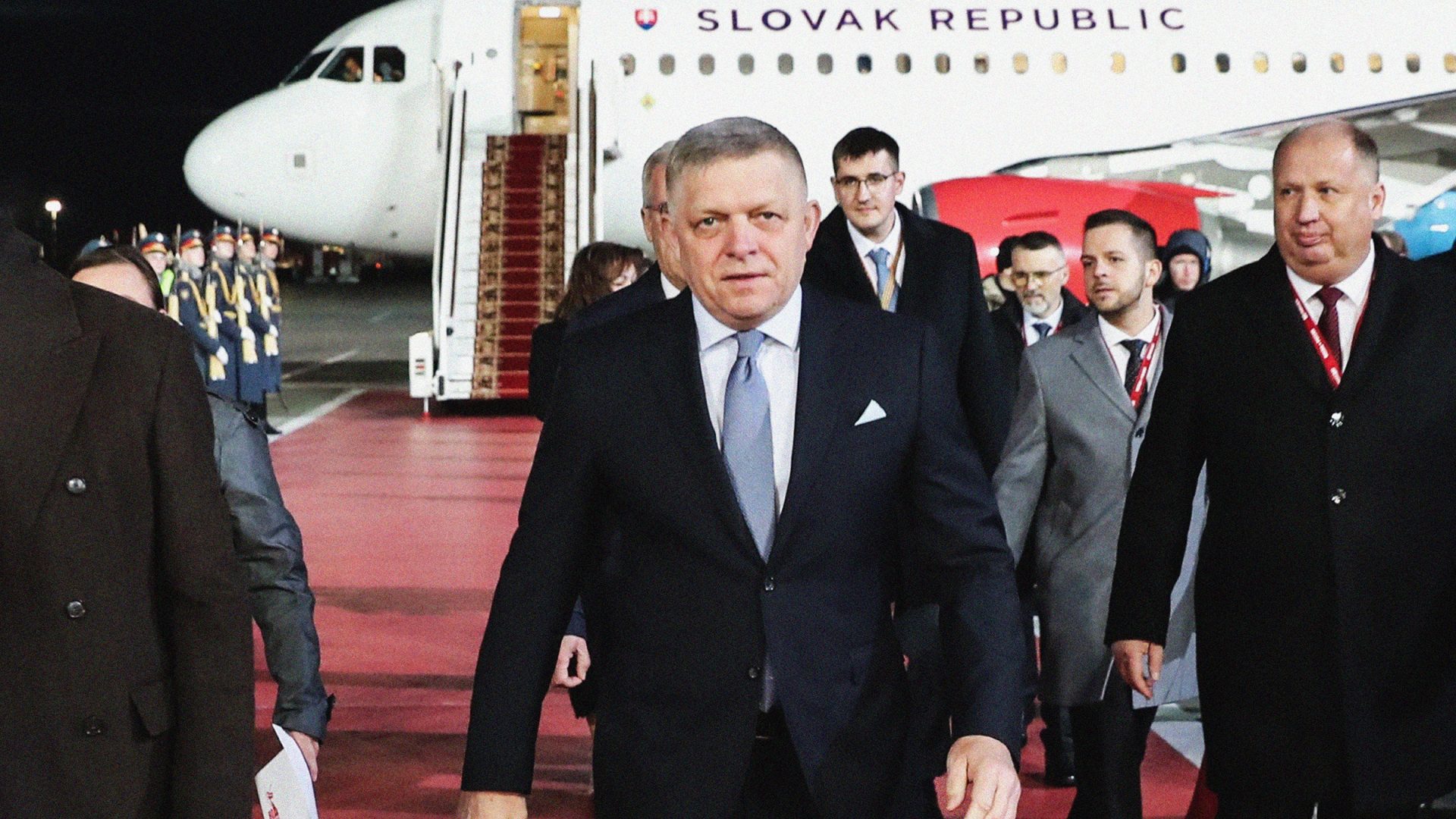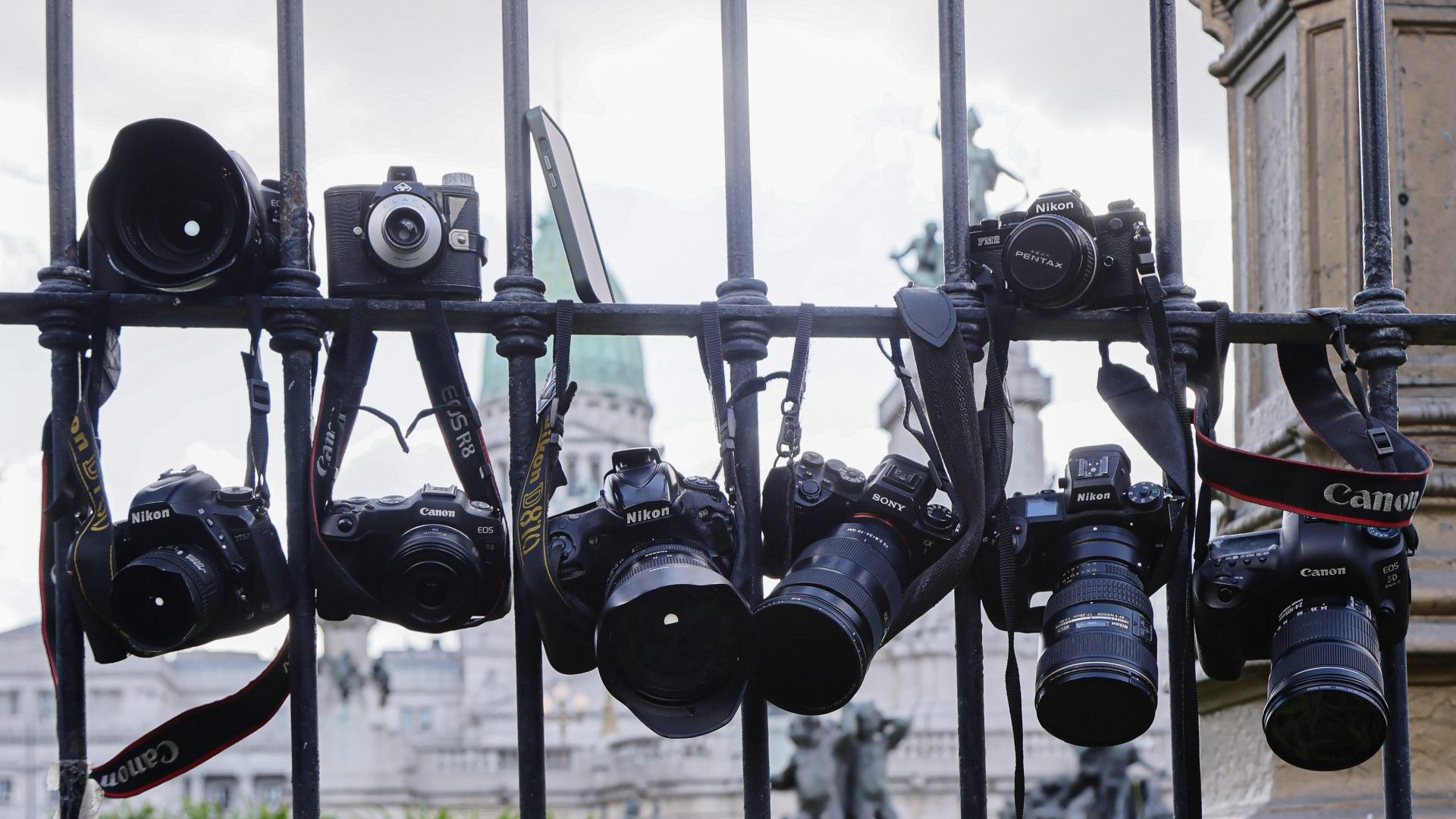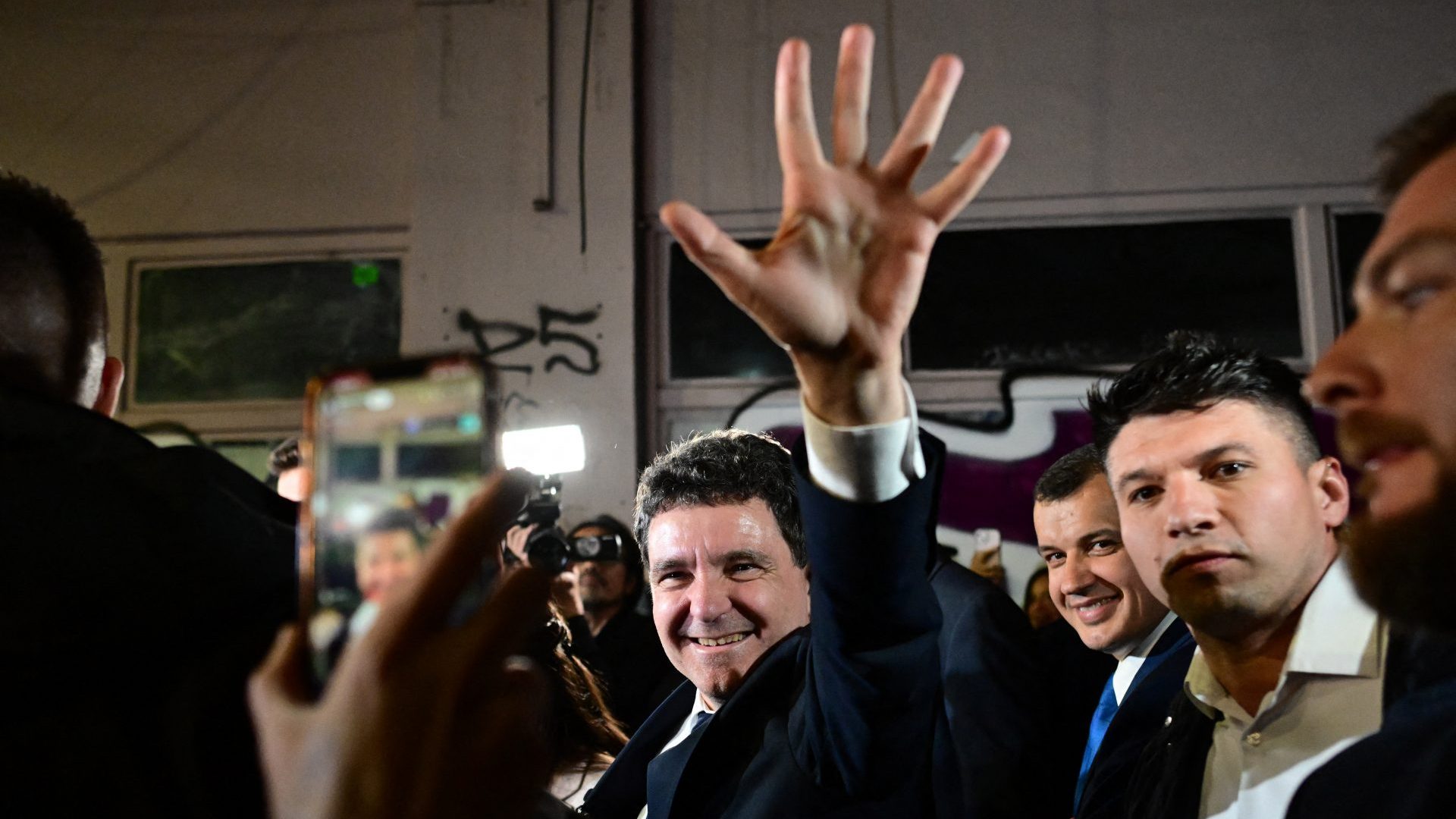In an extravagant show of military might, Vladimir Putin presided over a grand parade in Moscow’s Red Square to mark the 80th anniversary of the Soviet victory in the second world war. More than 10,000 troops marched through the capital, even as the war in Ukraine continued. Meanwhile, in Slovakia, almost 10,000 demonstrators gathered in central Bratislava on Victory in Europe Day, the day before the Moscow parade. People protested outside the government’s headquarters, with Slovak and EU flags filling the square in a show of dissent.
The prime minister, Robert Fico, was en route to Moscow for a meeting with Putin, his second visit in recent months. He was the only EU leader present in Moscow on that day. Fico’s previous trip triggered widespread outrage and months of mass demonstrations. At one point, Fico described the protests as an attempted coup.
Michal Šimečka, leader of Progressive Slovakia, the main opposition party, which is currently leading in the opinion polls, has criticised Fico’s foreign policy direction. “It is a disgrace and a betrayal of Slovakia’s national interests, which is driving our country out of the EU. This is happening against the will of our citizens,” he told me. “I am convinced that there will be a political change in Slovakia and that we will bring Slovakia back to the European table”.
A few hours before his departure for Moscow, Fico marked Victory Day in the town of Piešťany. His speech was met with a mix of applause and boos.
Then it was off to Moscow, where he had a brief exchange with Putin, a meeting with the general secretary of the Communist Party of Vietnam, Tô Lâm, a cheerful photo op with the Serbian president, Aleksandar Vučić, and even a meeting with the Chinese president, Xi Jinping, their second in six months.
Fico did not attend the parade itself – the EU had made clear that his attendance would have crossed a red line. In protest at Fico’s show of friendship towards Putin, the Baltic states barred his plane from their airspace, forcing a lengthy detour.
Rastislav Káčer, our former foreign minister, told me he thought the trip was “both a disgrace and a strategic mistake”. The trouble with Fico, he said, was that he “targets ‘the west’, despite the fact that we conduct almost 90% of our trade with the west. Yet when he is in trouble, he turns to Brussels, seeking compensation, subsidies, and diplomatic support.”
Since the start of the year, Fico has managed, albeit with difficulty, to hold his fractured coalition together, while using foreign affairs as a tool of self-promotion.
It began in February with a trip to the conservative gathering of MAGA Republicans at the CPac conference in the US. It was meant to be a photo opportunity with Donald Trump, but events did not unfold as planned. In the end, Fico managed only a brief meeting with Elon Musk and a mention on the welcome list from Trump. He returned from Washington without his longed-for photo, or even a handshake from his political idol.
Trump is no friend of Slovakia. His tariffs on the car industry pose a significant threat to our economy – Slovakia produces around 1m vehicles each year.
Jakub Filo, deputy editor-in-chief of Slovak daily SME, said: “Fico is a Slovak proponent of authoritarian national conservatism. His approach to foreign affairs is not focused on strengthening ties with Slovakia’s natural partners and allies, but rather on forging connections with other national conservatives and autocratic leaders.
“Domestically it serves him, as a significant portion of his and the governing coalition’s electorate holds pro-Russian sentiments and is susceptible to Russian propaganda.”
Against this backdrop, Fico appears to be cultivating a carefully crafted image of strength, just like Putin. However, also like Putin, Fico’s foreign adventures are leaving him increasingly isolated. They may no longer be delivering the domestic political gains they once did.
Branislav Ondrášik reports for the Slovak daily SME



